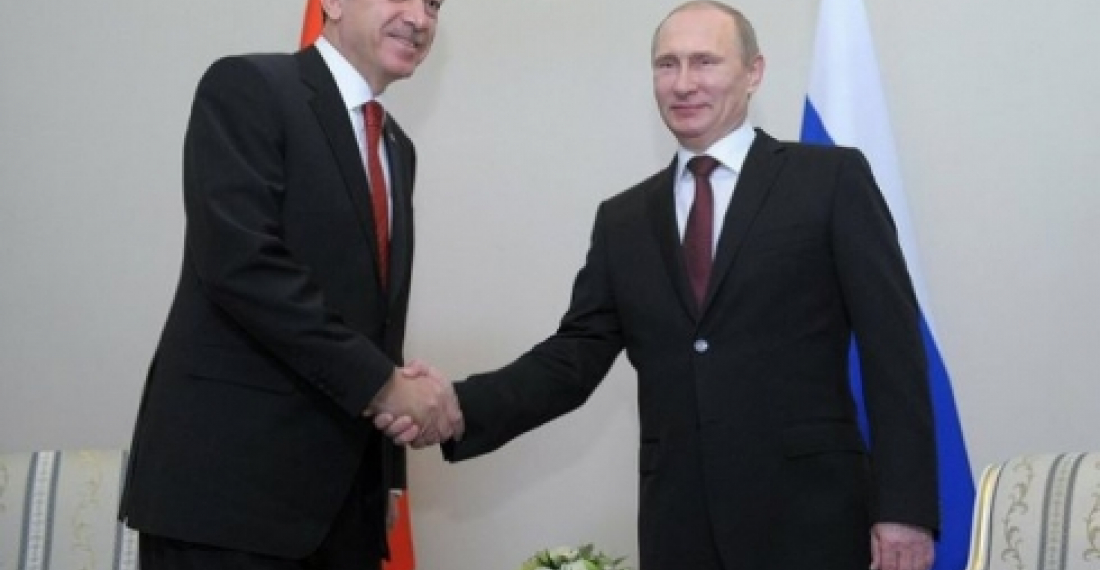Turkish President Recip Tayip Erdogan has turned down an invitation from Russian President Vladimir Putin to attend this year's victory parade on Moscow's Red Square. Turkish sources say that Turkey will be represented instead by its Ambassador in Mosocw, Umit Yardin.
Turkish-Russian relations were reported to have reached new heights in January when President Putin visited Ankara in what was described as the start of a new strategic relationship between the two countries. Relations however deteriorated suddenly last month when President Putin attended the Armenian genocide celebrations in Yerevan. The Turkish government was also upset with the choice of words used by the Kremlin on that occasion.
"April 24, 1915 is a melancholy date, related to one of the most horrendous and dramatic events in human history, the genocide of the Armenian people," Putin said in a letter to the World Without Genocide commemorative event on April 23, the text of which was also posted on the Kremlin website. The Russian State Duma voted on April 24 to pass a resolution that described the 1915 events as "genocide."
Media reports suggest that only 12 leaders out of 68 invited countries will attend Russia's Victory Day Parade, including from China, India, South Africa, Greece, Serbia and Cyprus, as well as Armenia and Azerbaijan. It is understood that some leaders, including the leaders of some EU countries have decided to be present in Moscow for the celebrations marking the victory over fascism, but not to participate in the military parade on Red Square.
When asked why so many world leaders had not accepted the invtiation, Russian Foreign Minister, Sergei Lavrov said, "It is an invitation, not a military call-up".
Commonspace.eu political editor said in a comment that "Turkish Russian relations have certainly cooled down following Putin's genocide remarks, but both sides are interested in playing down the differences. For the Turkish leadership however Russian wholehearted endorsement of the "genocide agenda" creates problems for their own narrative in describing genocide recognition as a western conspiracy. As a result Turkey may in the future be more vocal in criticisng Russian actions, especially in Crimea, where Erdogan is often accused of abandoning the interests of the Tartar indigenous population of the peninsula. However some of the more strategic areas in the relationship, such as energy, are likely to be less affected by the controversy. Here other factors come into play. Turkey may indeed find it convenient in the future to use the "genocide agenda" as an excuse to back track on some of the agreements that it has reached with Russia, and which it may find not to have been so convenient after all".
source: commonspace.eu
photo: President Erdogan of Turkey and President Putin of Russia. (archive picture)







